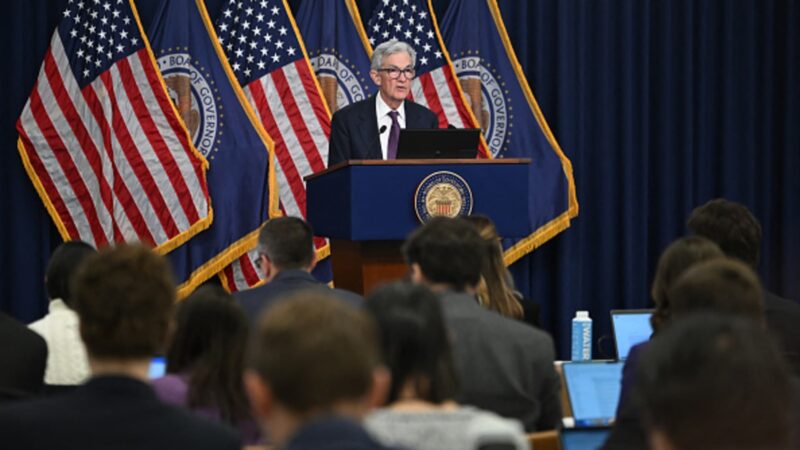
In a recent Commentary- MicroStrategy Is A Leveraged ETF In Disguise – we discussed the company’s business model, which revolves almost entirely around highly speculative bitcoin and leverage. To wit:
So, what is MicroStrategy? It’s a leveraged Bitcoin fund disguised as a non-profit technology company.
Regarding leverage and speculation, we also recently discussed the surging use of options, particularly those with short time frames. Options employ significant leverage. Thus, record options volume, especially in calls with short periods until expiration, is another sign that speculation is rising.
In addition to the two examples of growing leverage and market speculation, we see surging volume in leveraged single-stock ETFs. An example of such an ETF is Granite Shares NVDL. The ETF offers a 2x leveraged holding of Nvidia shares. If Nvidia falls by 3%, the ETF will decline by 6%. Conversely, if Nvidia rises by 5%, the ETF will climb 10%. Accordingly, leveraged single-stock ETFs can be incredibly speculative. Furthermore, the massive surge in volume in such ETFs, as we share below, further confirms speculative behaviors are growing.
Leverage and speculation can drive markets higher than most investors forecast. However, in the process, they create a divergence between fundamentals and valuations, thus exposing the markets to risk. Increased leverage and speculation are not reasons to sell immediately, but they indicate that markets are getting frothy, warranting our close attention.

What To Watch Today
Earnings
- No notable earinngs releases.
Economy

Market Trading Update
In yesterday’s update, we touched on the recent surge in small and mid-cap stocks. At the same time, the large-cap index finally pushed through the 6000 level, and momentum continued. With the market getting short-term overbought, it is possible we could see a bit of a pullback before a year-end push to close above 6000. However, with the market already up 24%+ this year, I am not sure it makes much of a difference one way or the other.
Currently, the market is on a bullish push higher, but short-term market conditions are becoming more overbought. Notable, the MACD “sell signal” is reversing to a “buy,” which could help push prices higher in the near term. With that said, the upside is likely limited momentarily due to the deviation from 50-DMA, but those deviations can become more stretched, particularly at this time of the year when trading volume is light and volatility tends to increase. It is still advisable to remain weighted to equity risk for now, but don’t be surprised if we see some sloppy trading between Friday and the first week of December.


Insiders Are Selling, Should You?
A recent article in the Financial Times sheds a concerning light on U.S. corporate executives. Per the Financial Times:
Record numbers of US executives are selling shares in their companies, as corporate insiders from Goldman Sachs to Tesla and even Donald Trump’s own media group cash in on the stock market surge that has followed his election victory.
The rate of so-called insider sales has hit a record high for any quarter in two decades, according to VerityData. The sales, by executives at companies in the Wilshire 5000 index, include one-off profit-taking transactions as well as regular sales triggered by executives’ automatic trading plans. The Wilshire 5000 is one of the broadest indices of US companies.
Insiders sell stock for various reasons, many of which are unrelated to their company’s prospects. Therefore, record selling is not necessarily a dire warning. However, given recent returns, high valuations, the growing use of leverage, and a generally highly speculative environment, insider sales are another warning that markets may underperform expectations in 2025.
In regards to correlating insider sales and market performance, Ben Silverman of VerityData shares the following from the Financial Times article:
Generally with selling, in terms of predictiveness, insiders are early by about two or three quarters,” he said. “As they start seeing froth in the market is when they try to generate liquidity more aggressively.

Credit Spreads: The Market’s Early Warning Indicators
Credit spreads are critical to understanding market sentiment and predicting potential stock market downturns. A credit spread refers to the difference in yield between two bonds of similar maturity but different credit quality. This comparison often involves Treasury bonds (considered risk-free) and corporate bonds (which carry default risk). By observing these spreads, investors can gauge risk appetite in financial markets. Such helps investors identify stress points that often precede stock market corrections.
The chart shows the annual rate of change in the S&P 500 market index versus the yield spread between Moody’s Baa corporate bond index (investment grade) and the 10-year US Treasury Bond yield. Rising yield spreads consistently coincide with lower annual rates of return in the financial market.

Tweet of the Day

“Want to achieve better long-term success in managing your portfolio? Here are our 15-trading rules for managing market risks.”
Please subscribe to the daily commentary to receive these updates every morning before the opening bell.
If you found this blog useful, please send it to someone else, share it on social media, or contact us to set up a meeting.
Source link




